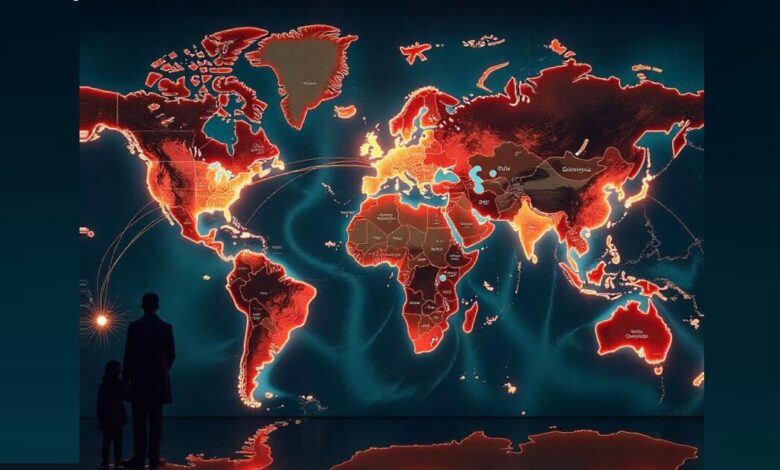Australia Joins with Canada, Mexico, Germany, UK, Spain, South Korea in Cancelling US Trips and Choosing More Easy Trips, The Truth Hidden in Plain Sight
News Mania Desk / Piyal Chatterjee / 11th June 2025

Australia has now joined Canada, Mexico, Germany, the UK, Spain, and South Korea in an expanding initiative to cancel travel to the United States. The change is noisy, intentional, and unmissable. These nations are not merely cutting back on travel—they’re opting for more accessible, secure, and hospitable places. And the US, once the aspiration, is now the diversion.
Australia is turning away. Canada is looking inward. Mexico is changing its course. Germany, the UK, Spain, and South Korea are all taking similar actions. The dynamics of travel are shifting rapidly. But what is the reason for this now? Why everything at the same time?
The reality is concealed in obvious visibility. It’s in the news. It’s located in the airports. It’s in the nervous discussions of travelers doubting their choices. And now, it’s turning into an international trend.
This isn’t merely a break. It’s a strong declaration. One that might transform worldwide tourism—and cause America to struggle to restore the trust it’s swiftly losing. Australia’s romance with travel to the U.S. is diminishing quickly. Previously a popular spot for Australian travelers, the United States is currently experiencing a significant decline. Flights are getting rescheduled. Travel plans are being ripped apart. Travel funds are being shifted to nations that appear safer, more welcoming, and more reliable.
Australia is now aligning with Canada and Mexico in a growing trend of traveler disengagement from the U.S.—and the effect on America’s tourism sector is rapidly becoming unmistakable.
Australian travelers are increasingly worried about traveling to the U.S., seeing it as a risky bet because of a challenging visa procedure and inconsistent border encounters. Current policies increase anxiety, as strict airport screenings and accounts of cultural friction discourage them from traveling.
This pattern is reflected by travelers from Canada and Mexico, resulting in a notable 18% drop in Australian outbound tourism to the U.S. This decrease is financially catastrophic for the U.S. tourism sector. At the same time, travelers from Australia are moving towards regions such as Japan and Europe, where comfort, reliability, and warmth are emphasized, causing the U.S. to face challenges in drawing visitors relative to these flourishing spots.
The change in travel patterns is affecting aviation and hospitality, as Australian airlines adapt to evolving expectations and travel consultants modify their approaches. U.S. tourism initiatives face challenges as appealing offers and digital influencers in Europe and Asia capture interest.
Australians are cautious about entry procedures, encountering rigorous checks and tough interrogations, whereas nations such as Canada and the UK offer more seamless experiences. This waning interest impacts U.S. cities dependent on foreign tourists, marked by diminished expenditure from Australians. To restore trust, the U.S. needs to enhance entry regulations and hospitality; if not, dedicated markets may keep diminishing as tourists seek other options.






